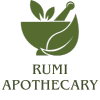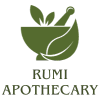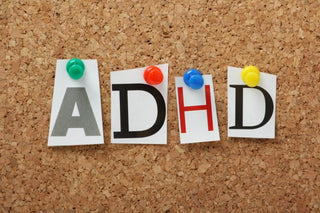Introduction
Attention Deficit Hyperactivity Disorder (ADHD) is a neurodevelopmental condition affecting individuals of all ages, characterised by challenges in sustaining attention, hyperactivity, and impulsivity. While conventional treatments often involve medication and therapy, an increasing number of individuals are exploring herbal alternatives for managing ADHD symptoms.
In our modern world quest for enhanced focus and task management, individuals grappling with Attention Deficit Hyperactivity Disorder (ADHD) face challenges that extend beyond mere difficulty concentrating. Symptoms include heightened energy levels, focus issues, and a predisposition towards impulsivity. Not too long ago, ADHD in both children and adults was often misunderstood as a behavioural choice, a misconception that, despite persisting in some circles, has been debunked.
Over the past few decades, ADHD rates have markedly risen across all age groups, with a notable increase among children. Various factors, such as genetics, the microbiome, nutrition, and lifestyle, play pivotal roles in ADHD. Given the multifaceted nature of ADHD contributors, relying solely on pharmaceutical interventions may not always yield the most effective outcomes. Today, we delve into the exploration of diverse natural herbs and supplements, offering valuable additions to personalised ADHD protocols.
The Fundamentals
A cornerstone for achieving optimal health and well-being lies in adopting a balanced lifestyle. Prioritise a diet rich in whole foods, colourful fruits and vegetables, whole grains, legumes, nuts, seeds, wild-caught fish (we are luck in New Zealand), and pasture-raised animal products.

Figure 1. Diet plays an important role in managing ADHD. Include plenty of colourful vegetables, fruits and greens into you diet. Freshly caught wild fish, combined with physical activity, makes angling a great sport to increase focus and combat ADHD.
Incorporate daily movement, be it through walking, yoga, dancing, or strength training. Finally, ensure a restful night's sleep, aiming for around 8 hours each night. If sleep proves challenging, consider consulting with our herbalists and check out the range of herbal remedies we have to promote a blissful sleep.
Herbs promoting mental clarity, focus, and attention span can be neatly classified into specific groups. Adaptogens, which balance and regulate the entire body system, enhance resilience to physical, emotional, and mental stressors. These can further be divided into gently stimulating or calming adaptogens. Nervines, another category, work to support and soothe the nervous system. Additionally, nootropics, herbs enhancing cognitive function, covering memory, focus, and attention span, are integral to this discussion. Notably, there's significant overlap, as many herbs belong to multiple categories, reflecting the interconnected nature of their benefits.
Adaptogens
As previously mentioned, adaptogens are herbs that enhance the body’s overall resistance to stress by promoting the nervous system to be in a parasympathetic dominant state, commonly referred to as the ‘rest and digest’ state (in contrast to ‘fight or flight’). One adaptogen recognised for aiding those with ADHD is Rhodiola (Rhodiola Rosea).
Clinical research indicates that individuals with ADHD often have deficient levels of dopamine and norepinephrine. Rhodiola has been utilised to elevate levels of neurotransmitters such as serotonin, dopamine, and norepinephrine. Moreover, Rhodiola aids in balancing any excess stress hormones, such as cortisol, which contribute to hyperactive behaviour. Further research suggests its positive impact on attention, memory, and mental fatigue. Rhodiola is classified as a gently stimulating or energising adaptogen.

Figure 2. Rhodiola Rosea is an adaptogen known for its stress-relieving properties, may benefit individuals with ADHD who often struggle with stress and fatigue. By balancing stress hormones and supporting energy levels, Rhodiola may contribute to a more focused and attentive mindset.
Additional adaptogenic herbs offering support for individuals with ADHD include Tulsi (Ocimum sanctum), Lion’s Mane (Hericium erinaceus), Ginkgo (Ginkgo biloba), Brahmi (Bacopa monnieri), and Velvet Bean (Mucuna pruriens).
Ginkgo Biloba, derived from the leaves of the Ginkgo tree, is renowned for its cognitive-enhancing properties. Rich in antioxidants, it may improve blood flow to the brain, potentially aiding in concentration and memory. While research on its efficacy for ADHD is limited, some individuals report positive effects.

Figure 3. Ginkgo is one of the oldest living trees on the plant Earth and its leaves resemble the structure of our brain stem. It Widley grown in New Zealand and other countries.
Bacopa Monnieri, an adaptogenic herb, has been traditionally used in Ayurvedic medicine to enhance cognitive function. Studies suggest that Bacopa may support memory retention and attention span by modulating certain neurotransmitters. It shows promise as a complementary herbal treatment for ADHD.

Figure 4 Bacopa is considered a very important healing plant in the traditional systems of medicine from India. It is used to reduce neurosis, hypertension, and anxiety. Bacopa is recommended in India as a tonic to slow down ageing. It is used to treat asthma, kidney ailments, leprosy, tuberculosis, and skin diseases.
Panax Ginseng, a well-known adaptogen, is believed to balance energy levels and improve cognitive performance. While more research is needed to establish its effectiveness for ADHD, some individuals find that Ginseng contributes to increased alertness and mental clarity.

Figure 5 Ginseng is the root of plants in the genus Panax, such as Korean ginseng, South China ginseng, and American ginseng, characterised by the presence of ginsenosides and gintonin. It takes 3 or 4 years for ginseng to reach maturity, after an initial year of preparation so, 4 or 5 crops need to be established before the first crop is harvested.
Nervines
Nervines are herbs specifically designed to support the nervous system. Much like adaptogens, nervines come in stimulating, relaxing, and overall tonic varieties.
A particularly beneficial herb that both nurtures and pacifies the brain is Avena sativa, commonly known as Green Oat. Before the seed head reaches maturity and is processed into oatmeal, it undergoes a phase where it's brimming with a milky liquid. These 'milky Oat tops' can be tinctured or dried for teas, offering assistance in soothing brain inflammation and supplying essential nutrients for the nervous system.
While not classified as a stimulating or relaxing nervine, Avena sativa is renowned as a tonic with significant regulatory benefits, particularly when consumed consistently over an extended period. For individuals with ADHD, this herb could be viewed as an excellent brain food, proving especially supportive in enhancing focus and concentration when paired with other nervines like Lemon Balm (Melissa officinalis), Gotu Kola (Centella asiatica), Linden (Tilia europaea), and Chamomile (Matricaria recutita).
Lemon Balm, with its mild sedative properties, may help alleviate hyperactivity associated with ADHD. Its calming effects are attributed to compounds that interact with neurotransmitters, promoting a sense of relaxation without sedation.

Figure 6. Lemon balm (Melissa officinalis) is an herb from the mint family. The leaves, which have a mild lemon aroma, are used to make medicine and flavour foods.
Nootropics
Nootropics represent a relatively recent category of herbs employed to enhance mental function and capacity. They have the potential to boost energy, focus, concentration, memory, and recall.
Brahmi (Bacopa monnieri) serves as a nootropic, additionally falling under the categories of nervine and adaptogen. In fact, most of the herbs mentioned thus far can be categorised under all three. Bacopa aids in reducing inflammation as a potent antioxidant, exhibits potential in regulating neurotransmitter activity, and enhances blood flow to the brain. Gotu Kola (Centella asiatica) is another herb encompassing all three categories, possessing similar antioxidant properties while also promoting mental function, memory, and cognition. Gotu Kola achieves these effects not through stimulation but rather via a mild relaxant effect that induces calmness.
Lion’s Mane mushroom stands as an invaluable adaptogen, nervine, and nootropic, with ongoing discoveries regarding its benefits. Rich in essential brain nutrients like choline, it profoundly impacts brain health. The mushroom can stimulate NGF (nerve growth factor), contributing to the improvement of myelin sheath health and regeneration. Lion’s Mane has been applied to enhance cognitive function for various conditions, spanning from ADHD to Alzheimer’s and traumatic brain injury.
Relaxation and Sleep
For individuals with ADHD experiencing sleep disturbances, Valerian Root may offer relief. Known for its calming effects, Valerian can promote relaxation and improve sleep quality, contributing to overall well-being.

Figure 7 Valerian has been used to ease insomnia, anxiety, and nervous restlessness since the second century A.D.
Final considerations:
- Consultation with a Healthcare Professional: Before incorporating herbal treatments into an ADHD management plan, it's crucial to consult with a healthcare professional. At Rumi Apothecary, we can provide personalised guidance and ensure that herbal remedies do not interact negatively with other medications. Book your consultation with Dr. Ali Seyfoddin here.

Figure 8 A range of herbal medications are available at Rumi Apothecary. Your individual personalised herbal mix will be developed for you after a consultation.
- Consistency is Key: Herbal treatments may require consistent use over time to observe their full benefits. Patience and persistence are essential when exploring herbal options. A holistic approach that includes consultation with healthcare professionals, lifestyle modifications, and herbal remedies may offer a well-rounded path towards managing ADHD symptoms and promoting overall well-being.


